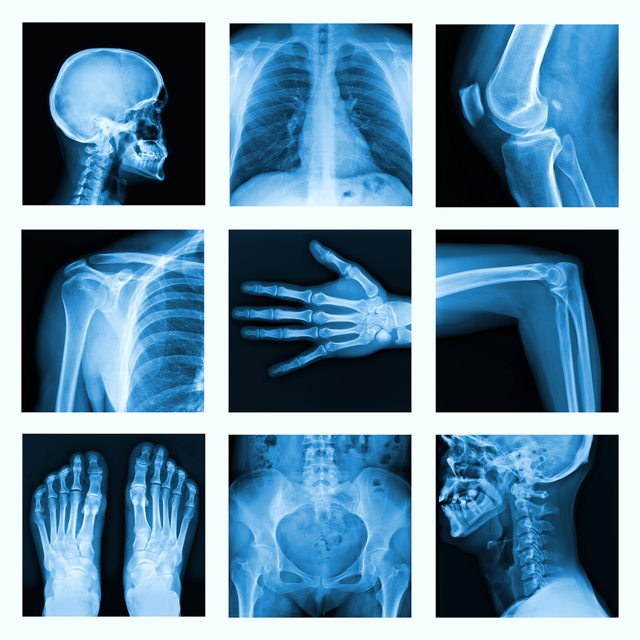
PET (Positron Emission Tomography) Scan
PET Scan
PET stands for Positron Emission Tomography. It is a procedure that adds an important new dimension to a physician's ability to diagnose and manage disease.
PET is a powerful diagnostic test that is having a major impact on the diagnosis and treatment of disease. PET can detect and stage most cancers, often before they are evident through other tests. PET can also give your physician important early information about heart disease and many neurological disorders, like Alzheimer's. Instead of detecting changes in the physical size or structure of internal organs, as other traditional imaging technologies do, PET detects changes in the cellular function. Since these functional changes take place before physical changes occur, PET can provide information that enables your physician to make an earlier diagnosis or to determine if current treatment is working effectively.
Even if a previous CT or MRI detected disease or abnormalities, PET can help, because PET can often characterize the cellular function early in the course of the disease. These capabilities can translate into faster initiation of the best possible treatment while avoiding more invasive exams or exploratory surgery.
Benefits of PET
- Painless and safe exam
- Provides earlier detection of recurrent cancer
- Differentiates between non-malignant (benign) and malignant tumors
- Eliminates invasive procedures and multiple tests
- Avoids unnecessary surgery
- Assesses the location and the stage of malignant disease accurately
- Locates previously unknown metastases using a whole body survey
- Monitors the efficiency of patient care and management
- Reduces the time to diagnosis and leads to earlier treatment
The exam is virtually painless and can eliminate invasive procedures and tests.
Preparing for Your PET Scan
Positron Emission Tomography (PET) is a nuclear medicine procedure that produces images of the function and metabolism of the cells in the body. PET has the ability to detect diseases such as cancer, heart disease, and neurological disease because it is able to detect chemical and physiological changes related to metabolism. Prior to the exam, you will be injected with a radioactive tracer which will distribute throughout your body. You will lie on a table that will pass through a scanner that will detect and record the signals emitted by the tracers. You should feel fine during and after your exam because there are no known side effects from the injected tracer. Expect to be at your scan for about 2 hours.
PET scans have numerous benefits. Because PET can illustrate biological functions, it allows for earlier detection than that of CT scans or MRI. Early detection allows for early treatment, which is the most effective time to begin treating disease. The exam is painless, safe and has the ability to differentiate between cancerous and non-cancerous tumors. It provides earlier detection of recurrent cancer and eliminates invasive procedures, multiple tests, and unnecessary surgery.
How should I prepare for my PET scan?
- No food six (6) hours prior to test
- Completely avoid gum, sugar and caffeine
- No carbohydrates, sugars, fruits or fruit juices for 24 hours prior to test
- Drink plenty of water before your appointment. No other liquid is allowed.
- Wear warm, loose-fitting clothing (i.e. sweats, flannel shirt, etc.)
- Do not wear any jewelry
- Take prescribed medications on the day of your exam if they can be tolerated on an empty stomach unless directed otherwise by your physician.
- Arrive at least 30 minutes early for your exam.
- No vigorous physical activity 24 hours before the exam.
- Should be able to lay flat on your back for one (1) hour or more
- Note: Melanoma patients will require two (2) hours
- Bring any previous MRI or CT scan with you to assure accurate results.
- Inform your technologist if you are or might be pregnant or breastfeeding. These women should not have a PET scan.
- Inform your technologist and physician if you are diabetic.
- If non-insulin dependent diabetic, take oral medication, and have a light meal six (6) hours prior to your exam.
- If insulin dependent diabetic (and on subcutaneous medication), take insulin (monitor glucose level) but not within six (6) hours of your test, and bring extra insulin with you to the exam.Eat a very small meal (6) hours prior to appointment.
When will I be informed of my results?
After your PET scan, the radiologist will mail or fax the results to your physician. The average turnaround time for Radiology reports is about 8 hours unless the radiologist needs to research more information about your medical history or previous studies for comparison. Your physician will schedule an appointment with you where he or she will discuss the study results.
Imaging Services at the Penn Highlands Brookville offer PET Scans.
Hours:
Every other Tuesday
3:00 PM - 9:00 PM
Imaging Services at the Penn Highlands Clearfield offer PET Scans.
Hours:
Every other Tuesday
7:00 AM – 3:30 PM
Imaging Services at the Penn Highlands DuBois offer PET Scans.
Hours:
Monday & Thursday
As needed
Imaging Services at the Penn Highlands Elk offer PET Scans.
Hours:
Tuesday
7:00 AM - 11:00 AM
Imaging Services at the Penn Highlands Huntingdon offer PET Scans.
Hours:
Two Saturdays Per Month
7:00 AM - 4:00 PM
Imaging Services at the Penn Highlands Mon Valley offer PET Scans.
Hours:
Monday - Friday
7:00 AM - 3:00 PM
Coming Soon!
Imaging Services at the Penn Highlands State College offer PET Scans.
Hours:
Monday - Friday
8:00 AM - 4:00 PM

